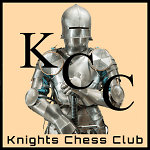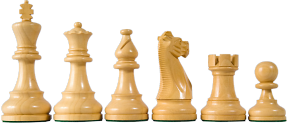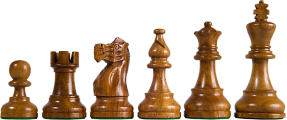
Knights Chess Club
Welcome To All, Young And Old


What Educators Say About Chess
"Not only have the reading and math skills of these children soared, their ability to socialize has increased substantially, too. Our studies have shown the incidents of suspension and outside altercations have decreased by at least 60 percent since these children became interested in chess.'' --Assistant Principal Joyce Brown at the Roberto Clemente School in New York, 1988 [25]
Dr. Fred Loveland, superintendent of the Panama City schools, voiced his opinion: ``Chess has taught my students more than any other subject.'' [26]
The article ``Chess Improves Academic Performance'' from the NY School Chess Program features a number of testimonies from school principals, including: ``Not only have the reading and math skills of these children soared, their ability to socialize has increased substantially, too. Our studies have shown that incidents of suspension and outside altercations have decreased by at least 60% since these children became interested in chess.'' [27]
"It's the finest thing that ever happened to this school. ...chess makes a difference...what it has done for these children is simply beyond anything that I can describe.'' [27]
"I see them (students) able to attend to something for more than an hour and a half. I am stunned. Some of them could not attend to things for more than 20 minutes.'' -- Jo Bruno, Principal, P.S. 189 [27]
Dr. Calvin F. Deyermond, Assistant Superintendent for Curriculum and Instruction for the North Tonawanda City School District, wrote: ``Chess develops intellectual, esthetic, sporting, decision making, concentration, and perseverance skills. We have seen the effects of this wonderful game in our classroom and as an extracurricular activity. Not only is it mentally challenging but it attracts not only gifted pupils but also students at all levels of learning. Many students who have been experiencing problems, particularly in mathematics and reading, sometimes demonstrate remarkable progress after learning chess.'' [28]
Rob Roy of Connecticut: ``Children with special problems can also learn chess. I taught a successful course for emotionally and educationally disadvantaged children in the Waterbury schools and used chess as a way for them to learn and practice self-control.It was like turning on switches in their heads. You see the child looking at a problem, breaking it down, and then putting the whole thing back together. The process involves recall, analysis, judgment and abstract reasoning.'' [38]
Public School 68 in the Bronx noted standardized scores increased 11.2% in reading and 18.6% in math during the 1994-95 school year. Principal Cheryl Coles wrote: ``As encouraging as our scores are, the benefits of our Chess Education Program far exceeded anything that these scores could ever hope to indicate. There were significant outgrowths in varying degrees in all curriculum areas. Such as: increased enthusiasm for learning, increase in general fund of knowledge, increase in pupil attendance, increase in self-confidence, increase in parent involvement, etc.'' [29]
Beulah McMeans, a guidance counselor at Morningside Elementary School in Prince George's County, MD, uses chess ``to help raise the self-esteem and higher order thinking skills for young students, particularly those at risk.'' [30]
"Intuitively, I feel what the kids learn from chess carries over to their everyday lives. The change shows up in their improved critical thinking and problem solving. It gets kids to think for themselves.'' -- Fred Nagler, Principal, P.S. 123 [27]
NOTES
- Roger Langen, ``Putting a Check to Poor Math Results,'' The Reporter, December 1992.
- Dr. Fred Loveland personal communication.
- Chess Improves Academic Performance, Christine Palm, 1990.
- Personal letter from Dr. Calvin F. Deyermond, Assistant Superintendent for Curriculum and Instruction for the North Tonawanda City School District.
- Personal letter to Allen Kaufman from Principal Cheryl Coles, June 9, 1995.
- Carol Chmelynski, ``Chess said to promote school performance and self-esteem,'' School Board News, July 6, 1993, Vol. 13 (12), pp. 7-8.
- "Check Mates,'' Fairfield County Advocate, Mar. 20, 1989.
Material excerpted or adapted from the Illowa Chess Club: TEACHER'S GUIDE: RESEARCH AND BENEFITS OF CHESS by Dr. Robert C. Ferguson






